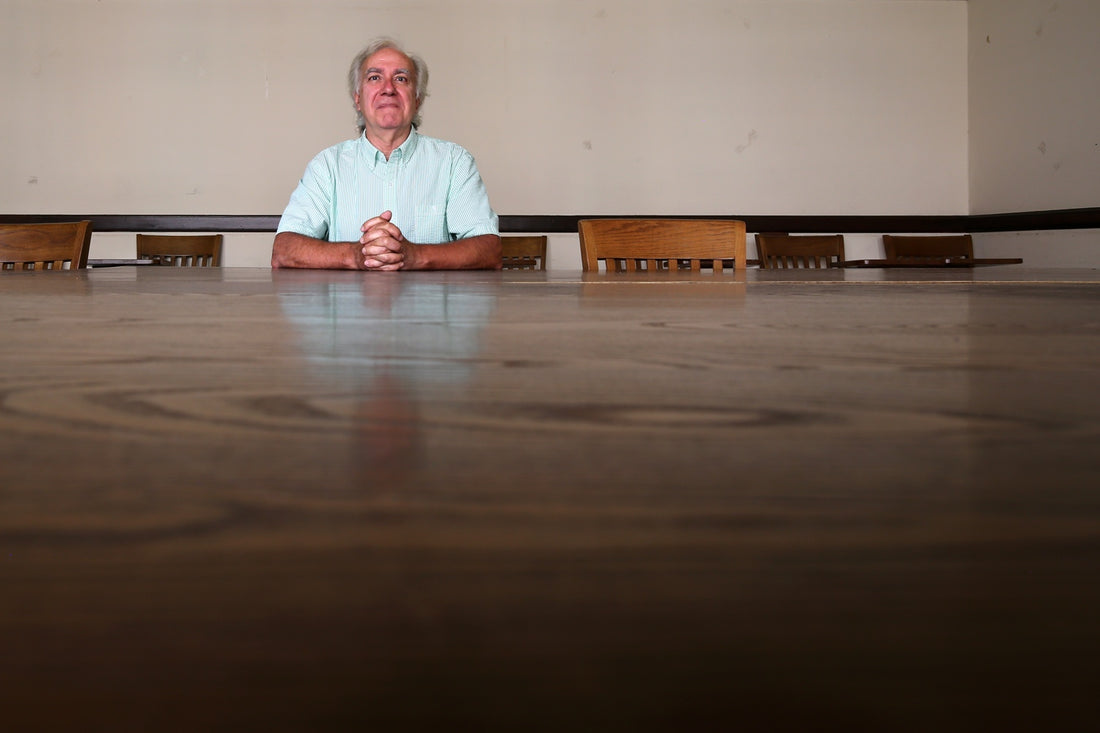August is Summer Reading Month in Daily Nutmeg, and Carlos Eire is this week’s featured author. Please enjoy this excerpt from Eire’s National Book Award-winning memoir, Waiting for Snow in Havana (2003).
* * *
Havana at night. Some nightlife, I’m told. I never got to enjoy it, so I can’t tell you about it.
Havana by day. Hot, yes, and radiant. The sunlight seemed at once dense and utterly clear. The shadows were so crisp, so cool. The clouds in the blue sky, each one a poem; some haiku, some epic. The sunsets: forget it, no competition. Nothing could compare to the sight of that glowing red disk being swallowed by the turquoise sea and the tangerine light bathing everything, making all of creation glow as if from within. Even the lizards. The waves, those turquoise waves, splashing against the wall of the Malecón, splashing, leaping over it to flood the road, lapping, lapping, lapping endlessly, eternally. Even in the worst of storms the waves were always a lover’s caress, an untiring embrace, an endless shower of kisses.
Of course, I didn’t think of it that way back then. Get lost. I was a boy. Images of hugs and kisses were unspeakably repulsive. Waves were fun, not sappy drivel. In the worst of storms my brother and I would ask our father, Louis XVI, to drive our car down the Malecón to be swallowed by the breakers. And King Louis was nice enough to comply.
sponsored by
“You know, kids, the saltwater will wreck the car,” he would remind us. But he would have as much fun as we did, perhaps more, driving through the surf. And he didn’t really care that much about rust. We loved it, especially when a surging wall of water would nearly tip us over, and the windshield wipers couldn’t race fast enough against the deluge. Sometimes we would pack as many of our friends as we could into the car, and my father would bravely take us all to be swallowed by the waves. Car surfing. Without seatbelts, of course. If Havana had been in the United States, the road would have been closed to traffic, and Dad would have been imprisoned for recklessly endangering the lives of children.
But Havana was not in the United States. That was the beauty of it, and the horror. So much freedom, so little freedom. Freedom to be reckless, but no genuine freedom from woe. Plenty of thrills, and an overabundance of risks, large and small. But so little margin for error, and so few safety nets. For the poor, opportunity knocked loudest in the lottery and the numbers racket. For anyone who wasn’t poor, life could be beautiful, even if all was balanced on a razor’s edge. As beautiful as a giant turquoise wave poised right over your head.
Havana was the capital of an island nation barely five decades into independence from the Spanish empire. My father’s parents had grown up in a Spanish colony, with slaves in their households. Many of the men in his family had trained as army officers in Spain, and their chief purpose in life was to keep Cuba a colony. Many went to their graves denying the fact they were Cuban. My father’s generation had been born in Spanish Cuba and had grown up along with the republic; his sister remembered hearing the blast that sank the battleship Maine in Havana Harbor. Fifty years is not that much time. How much can one expect of a nation as young as that, and especially of one so physically near to the richest, most powerful country on earth, and so dependent on it for its economic well-being?
Expect trouble.
But those waves, those turquoise waves, along with the sunlight, almost made up for the trouble. Almost. The divine, omniscient sunlight also shone on things warped and evil. Slums full of naked, parasite-infested children. Whorehouses. Bastards. Corpses. Bribes. Beggars. Bright green phlegm on the sidewalk. Bullies at school. And at night, the light was replaced by a menacing gloom, thick with bats, mosquitoes, prostitutes, and flying cockroaches. The turquoise waves turned inky black. Nothing frightened me more than the sight of that black water, except maybe for the sharks swimming silently beneath, and the malevolent magic of the brujeros, the voodoo sorcerers, who always did their dirty work at night.
* * *
Waiting for Snow in Havana
by Carlos Eire
Where to buy: Amazon | Barnes & Noble | IndieBound | RJ Julia
Image, photographed by Dan Mims, depicts Carlos Eire in Yale’s Hall of Graduate Studies.









